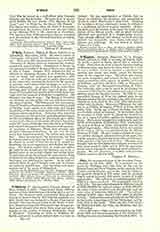

O’Hely, PATRICK, Bishop of Mayo, Ireland; d. at Kilmallock, September, 1579. He was a native of Connaught, and joined the Franciscans at an early age. Four years after his profession he was sent to the University of Alcala, where he surpassed his contemporaries in sacred studies. Summoned to Rome, he was promoted in 1576 to the See of Mayo, now merged in that of Tuam. Gregory XIII empowered him to officiate in adjoining dioceses, if no Catholic bishop were at hand, and supplied him generously with money. At Paris he took part in public disputations at the university, amazing his hearers by his mastery of patristic and controversial theology, as well as of Scotist philosophy. In autumn, 1579, he sailed from Brittany and arrived off the coast of Kerry after James Fitzmaurice had landed at Smerwick from Portugal with the remnant of Stukeley’s expedition. All Munster was then in arms. The House of Desmond was divided, and the politic earl had withdrawn from the scene of action. The bishop and his companion Conn O’Rourke, a Franciscan priest, son of Brian, Lord of Breifne, came ashore near Askeaton, and sought hospitality at the castle where, in the earl’s absence, his countess entertained them. Next day they departed for Limerick; but the countess, probably so instructed, for the earl claimed the merit afterwards, gave information to the Mayor of Limerick, who three days later seized the two ecclesiastics and sent them to Kilmallock where Lord Justice Drury then was with an army. As president of Munster, Drury had recently perpetrated infamous barbarities. In one year he executed four hundred persons “by justice and martial law”. Some he sentenced “by natural law, for that he found no law to try them by in the realm”. At first he offered to secure O’Hely his see if he would acknowledge the royal supremacy and disclose his business. The bishop replied that he could not barter his faith for life or honors; his business was to do a bishop’s part in advancing religion and saving souls. To questions about the plans of the pope and the King of Spain for invading Ireland he made no answer, and thereupon was delivered to torture. As he still remained silent, he and O’Rourke were sent to instant execution by martial law. The execution took place outside one of the gates of Kilmallock.

